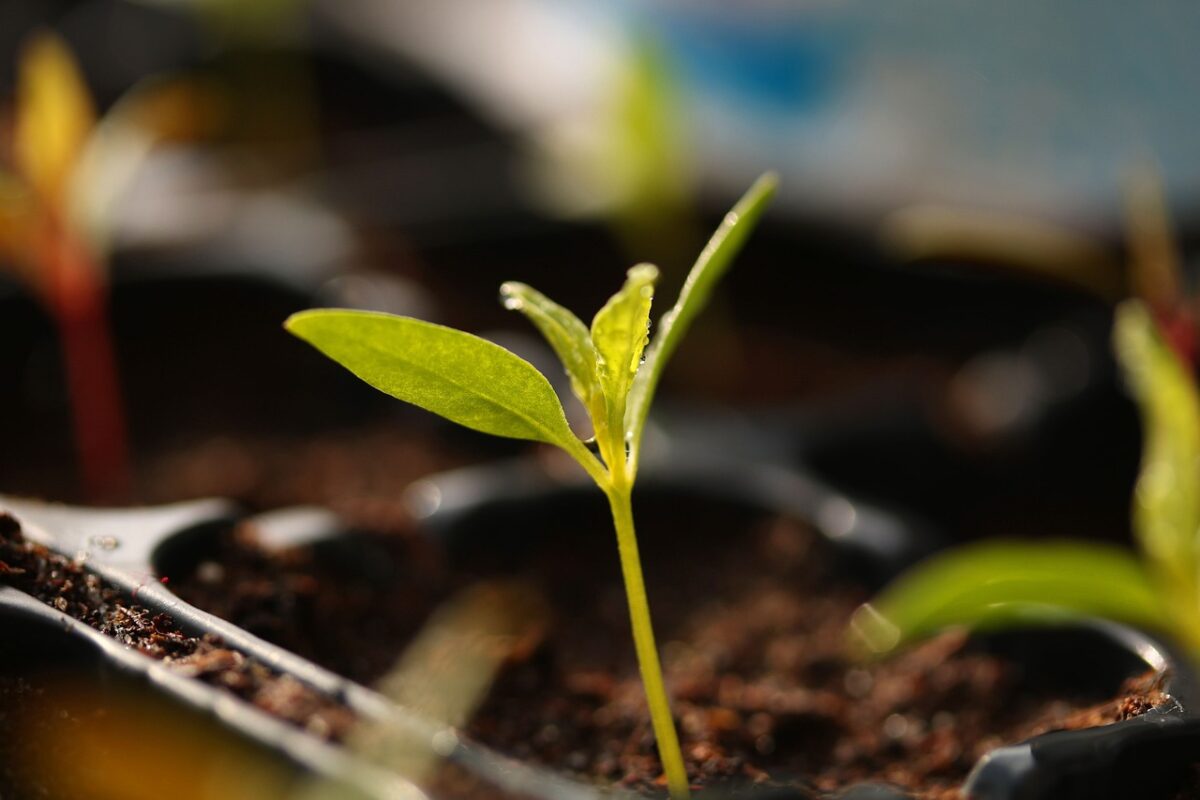The first time I heard this term, I confess I was somewhat confused. What would a seed library be? A library full of seeds? A garden for baby plants? A place for new species? The answer is a little of all that and more.
A seed library is an organisation that cultivates, stores and shares seeds within its community. It is also called a seed bank, being responsible for sharing its seeds responsibly among its members. Its value is especially linked to keeping diversity in planting, reforestation and communal gardens. Many seed libraries serve gardeners, farmers, schools, universities, or individual citizens who want to add to nature’s compositions.
But why have seed libraries become so popular and valuable nowadays?
One of the major impacts of the climate crisis is on diversity. There are millions of uncountable species that are dying out each year due to the temperature rise and its resultant effects. It is crucial that plant diversity is properly preserved and kept safe for the future. A common attribute of many seed libraries is to preserve agricultural biodiversity, and to focus on rare and local seed varieties. With a special aim to regenerate the soil and bring back the whole habitat, animals and plants together, safeguarding, proliferating and then resowing the seeds of threatened species can regenerate biodiversity and fight back further destruction.
The first seed library is recognised to have been created at the Berkeley Ecology Center in 1999, and it’s called BASIL (how pleasingly appropriate!) – Bay Area Seed Interchange Library. Since then, the number has grown intensively and there are now over 450 other seed library initiatives across the globe. It is an act of both pure benevolence and great responsibility for the next generations. However, anyone willing to green the world can help, for instance, by growing and saving seeds to create a communal garden in one’s town or neighbourhood.

Seed libraries use various methods for sharing seeds. One of them is through seed swaps, also known as seed exchanges. Thus, library members or the general public meet up to exchange seeds. There is also the possibility of seed ‘lending’. Therefore, people receive and grow seeds from the library’s collection. Then, these people save the seeds from their crops and return them to the library (circular seed production). Some seed libraries also function as environmental programmes inside public libraries.
Seed library initiatives in public libraries are a novelty supplement to book check-outs. Seed packets would be made available together with everyday circulated items like books and audiobooks. Seed libraries hosted inside public libraries have been extremely successful because they catch most readers’ attention, and provide great engagement within the local community of readers. Public libraries have, therefore, become an appropriate space for seed libraries because they make seeds and plants available to everyone.
There are seed libraries also located in college libraries, such as Hampshire College’s seed library, among others across the world. Other initiatives are linked to botanical gardens, such as the Heritage Seed Library of Garden Organic. Other seed libraries have evolved from community sustainability or resilience efforts, and connected to Slow Food movements or plant-based diets.
Seeds are powerful, vital! The Stroud Community Seed Bank in Gloucestershire is one of hundreds of initiatives across the UK. The goal is to have as many people as possible growing a wide diversity of seeds. Gardeners can also organise themselves and develop seed circles where they can grow their favourite old varieties, for instance, varieties that have been dropped from popular seed catalogues and so are no longer widely available.
Seed libraries’ activities can be boosted through intense training and innovative partnerships. It has become clear that our plant heritage is under threat by pesticides and big business. Below, there are links leading to some of the seed libraries across the UK, but there are many more. They are well worth a visit: they hold many exciting discoveries for us all.
Seed Libraries Initiatives:
https://liberatediversity.org/heritage-seed-library/
https://www.gardenorganic.org.uk/seeds/pea-glory-of-devon
https://www.exeterseedbank.co.uk/
https://www.aberfoodsurplus.co.uk/seed-library
https://www.north-ayrshire.gov.uk/libraries/seed-libraries.aspx
https://www.agricology.co.uk/resources/heritage-seed-library-seed-saving-guidelines
https://atlasarts.org.uk/programme/the-palestine-heirloom-seed-library
Monica Mastantonio





